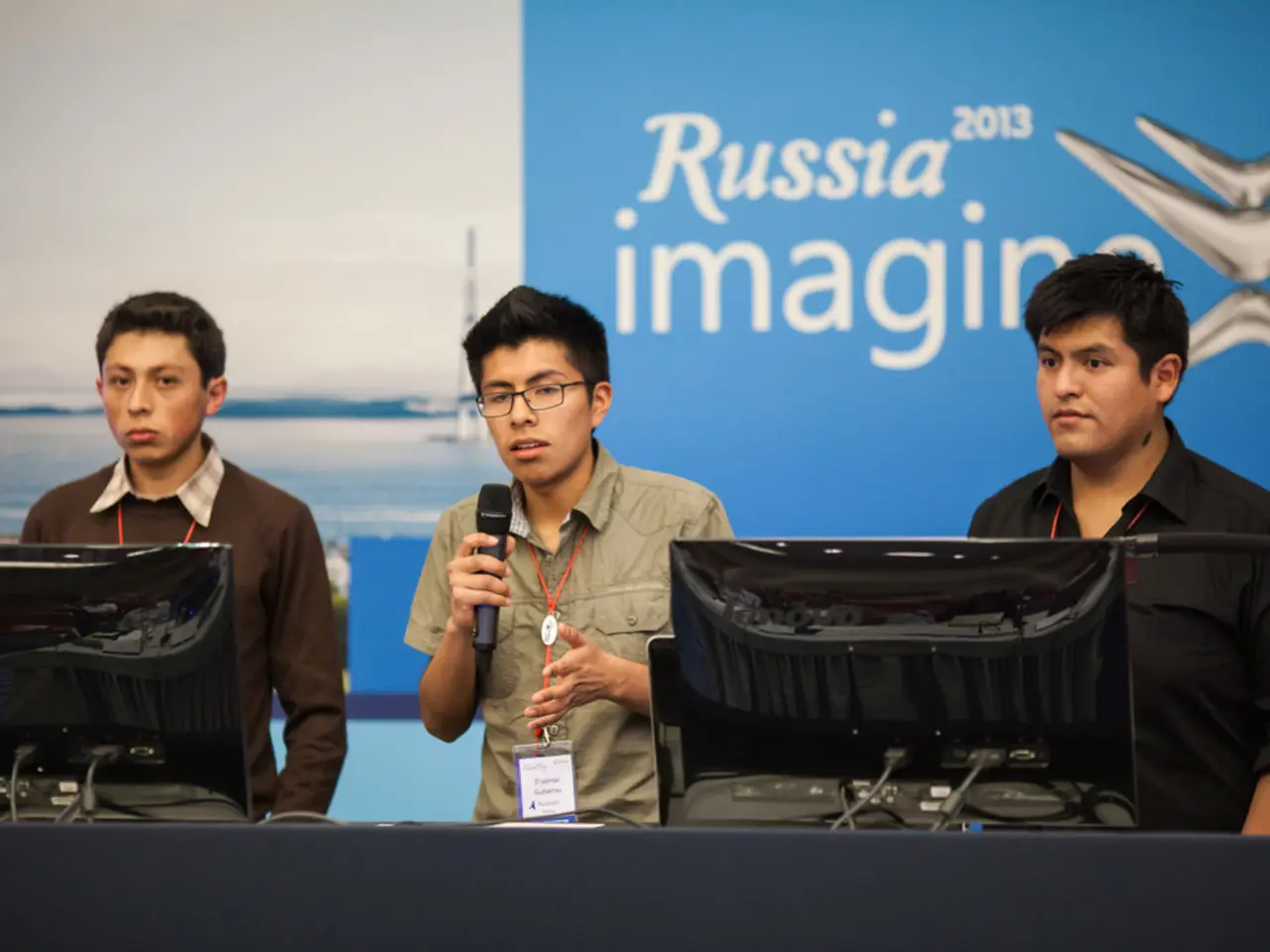Russia Hides Communist Roots?
Russia's political system retains some influence from communism, with the Communist Party of the Russian Federation (CPRF) remaining an active force. The CPRF, the second-largest political party, officially adheres to Marxist-Leninist philosophy[1]. However, Russia's governance is primarily dominated by Putin's United Russia party.
Domestically, communist ideology is more symbolic and political than direct governance. The CPRF advocates for socialist ideas, such as the nationalisation of natural resources and large industries within a mixed economy, alongside support for private small and medium enterprises[1]. Despite this, the government puts pressure on the CPRF, targeting communist activists and attempting to marginalise the party politically[3]. Soviet-era figures like Stalin continue to be rehabilitated, showing the influence of Soviet communism on Russian society's current ideology[5].
In foreign policy, there is a clearer post-Soviet ideological lineage, albeit more Eurasianist and neo-Soviet than traditionally communist. Russia's official foreign policy document (2023) embraces an Eurasianist, anti-Western stance, positioning Russia as the successor state to the USSR and seeking to spread positive narratives about the Soviet Union’s role in global affairs[2]. This neo-Soviet posture promotes multipolarity against Western (especially U.S.) dominance[2]. Russia's close ties with China and efforts to unite Eurasian countries into a geopolitical bloc echo some aspects of Soviet-era Eastern Bloc cooperation, but they also mix nationalist and civilizational ideas with the former communist legacy[2].
In summary, while communism as an ideology no longer defines Russia’s political system, its legacy persists in the form of a Marxist-Leninist party presence, Soviet nostalgia in culture and politics, and a neo-Soviet element in foreign policy aimed at restoring Russia's global influence and countering the West. The CPRF symbolizes a modest direct domestic communist influence, whereas Russia’s official state direction under Putin combines nationalism, Eurasianism, and neo-Soviet narratives rather than orthodox communism[1][2][3][5].
References:
[1] "Communist Party of the Russian Federation" - Wikipedia [2] "Russia's Foreign Policy in the 21st Century" - The Brookings Institution [3] "The Communist Party of the Russian Federation" - The Guardian [5] "Soviet Nostalgia in Putin's Russia" - The New York Times
- The Communist Party of the Russian Federation (CPRF), though losing its governing power, maintains its presence in Russia's political system, following Marxist-Leninist ideology.
- Russia's domestic governance is predominantly controlled by Putin's United Russia party, but communist ideology lingers symbolically and politically, advocating for nationalization and mixed economies alongside private enterprises.
- Despite the CPRF's presence, the Russian government diplomatically pressures communist activists and strategically marginalizes the party to minimize its influence.
- References to Soviet-era figures like Stalin illustrate the resilience of Soviet communism's imprint on Russian society's current ideology.
- In foreign policy, Russia leans more towards an Eurasianist, anti-Western stance rather than traditional communist ideology, positioning itself as the successor state to the USSR and promoting a multipolar world against Western dominance.
- This neo-Soviet posture in foreign policy emphasizes Russia's close ties with China and aims to unite Eurasian countries as a geopolitical bloc, with echoes of Soviet-era Eastern Bloc cooperation and blends of nationalist, civilizational, and communist ideas.
- Russia's foreign policy document of 2023 endorses a nostalgic appreciation of the USSR’s role in global affairs, using propaganda to present positive narratives that build upon the former communist legacy.
- The CPRF, as the second-largest political party in Russia, serves as a remnant of direct Communist influence at home, while Putin's administration primarily embodies a mixture of nationalism, Eurasianism, and neo-Sovietism in its strategy and policy-making.
- The intricate interplay of communism, nationalism, Eurasianism, and neo-Sovietism in Russia's political, social, and foreign policy landscapes proves essential to understanding its ongoing role in world affairs, particularly in terms of war and conflicts, general news, crime and justice, education, self-development, career development, and policy-and-legislation aspects.




